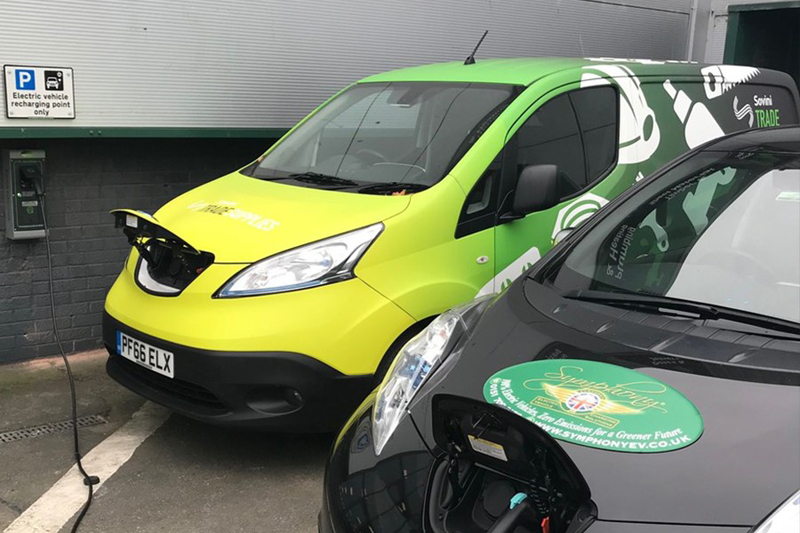
The Government has announced further plans to target vehicle emissions which, when combined with the latest BMF data highlighting an increase in the cost of diesel by more than 11pence per litre over the last 12 months.
This means that sustainable transport solutions are beginning to take on increased importance but knowing the best options available can prove difficult. PBM reports.
With targets to reduce vehicle emissions by 15% by 2025, the Government has set a significant challenge to those where logistics is a crucial part of their business. Innovation from the industry is ensuring that a number of ‘diesel alternatives’ are increasingly viable — including electric, gas power and hydrogen powered fuel cells — however businesses understandably caution that their performance must satisfy current requirements
Electric commercial vehicle innovators Tevva was a gold partner at one of a number of recent Freight Transport Association events to address the topic and the company’s Sales & Marketing Director, David Thackray, commented: “Mass adoption of electric trucks that will benefit air quality, reduce GHG emissions and reduce fossil fuel dependency can only happen when those electric trucks are at least equally as practical and as cost-effective to operate as the old diesels.”
Crucially, he argued: “Tevva trucks beat traditional diesels on total cost of ownership and offer cash flow benefits from month one. Simultaneously, Tevva trucks can do absolutely anything a polluting diesel can do whilst offering at least 150km zero emission range.”
A similar message is proposed by Paneltex, which officially launched its new production range of Magtec powered 7.5 tonne electric trucks at Cenex-LCV 2018, billed as the UK’s premier low carbon vehicle event, in September last year. The range has been in development for 10 years with long-term support from a number of key partners and the launch featured three models covering parcel carrier, caged tipper and refrigerated box body applications.
Based on the standard Isuzu N75 7.5t chassis cab with a 3815mm wheelbase, the electric truck range is powered by Magtec P180 motor drive systems and P182 motor controllers. The trucks are designed to operate, dependent on use, fully loaded with a range of up to 80 miles with the 80kWh battery pack. Vehicle top speed is limited to 50 mph, whilst the cab driving environment is very similar to a standard diesel equivalent.
Such innovation is already beginning to take hold in the merchant sector. We have previously covered hybrid vehicles operated by the likes of Graham and MKM, along with discussing Lawsons’ deployment of a 26 tonne Iveco Eco Truck, powered by natural gas.
Sovini Trade Supplies can now be added to that pioneering list, having joined the “electric vehicle revolution” as part of its Corporate Social Responsibility pledge. The firm has partnered with Symphony Electric Vehicles to implement ‘zero emission deliveries’ with a new eNV200 Nissan Van operating from its Aintree depot.
It also recently installed two Electric Charging Points at the branch as part of a bid made through Merseytravel’s latest Capital Grant scheme and its Workplace Charge Point programme, aimed at increasing the number of Ultra Low Emission Vehicles (EV) across the region.
The introduction of electric vehicles to the fleet is said to ensure significant financial savings to the company, in addition to the environmental benefits, as the 100% electric vehicles are road tax exempt and cost just £2.00per 100 miles to run.
With plans to roll out the charging point scheme at its Ellesmere Port and Eccles stores in the near future, Regional Operations Manager Alan Evans added: “We are working to introduce more electric vehicles to our growing fleet in 2019.”









